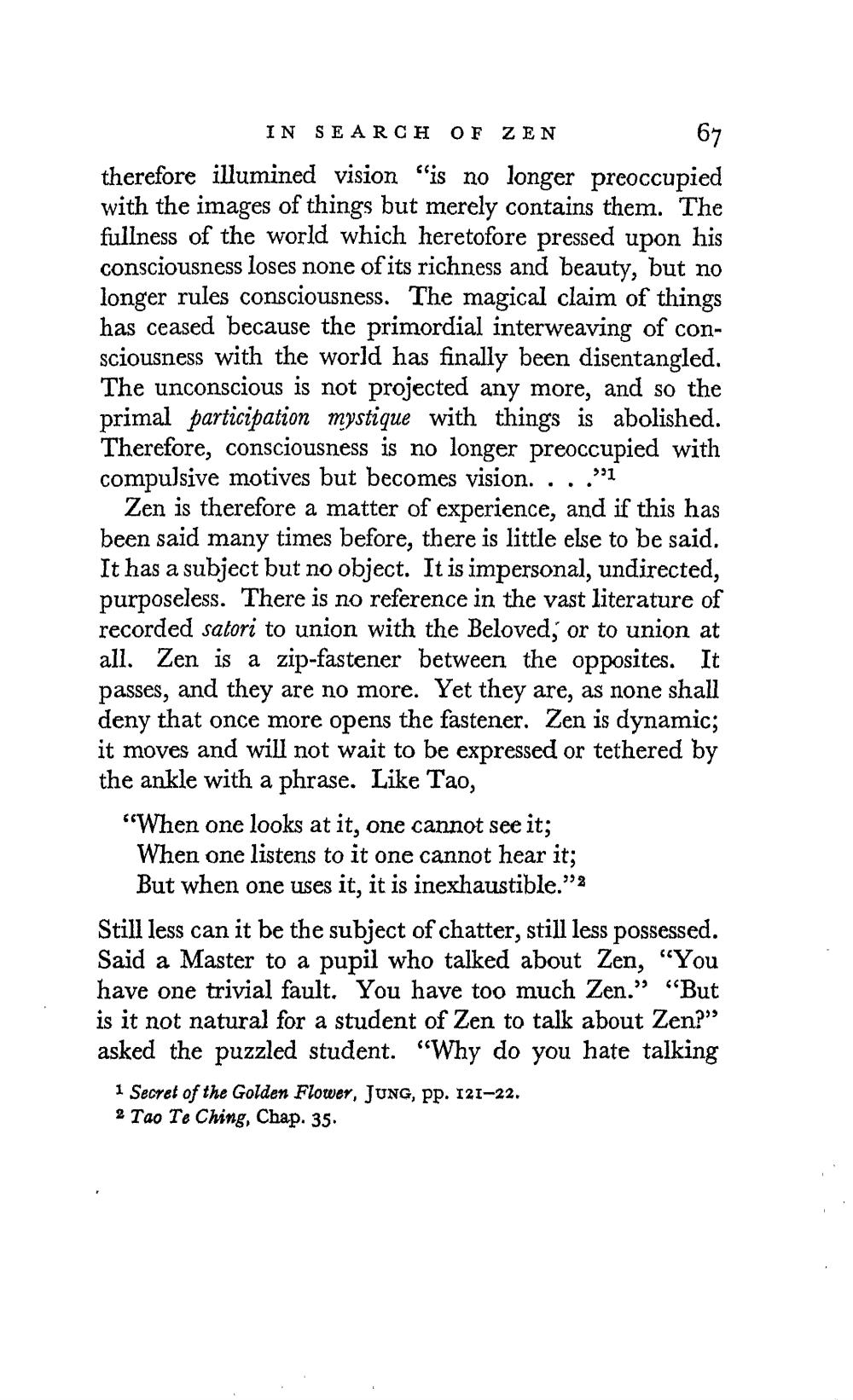________________
67
IN SEARCH OF ZEN therefore illumined vision “is no longer preoccupied with the images of things but merely contains them. The fullness of the world which heretofore pressed upon his consciousness loses none of its richness and beauty, but no longer rules consciousness. The magical claim of things has ceased because the primordial interweaving of consciousness with the world has finally been disentangled. The unconscious is not projected any more, and so the primal participation mystique with things is abolished. Therefore, consciousness is no longer preoccupied with compulsive motives but becomes vision. ..."
Zen is therefore a matter of experience, and if this has been said many times before, there is little else to be said. It has a subject but no object. It is impersonal, undirected, purposeless. There is no reference in the vast literature of recorded satori to union with the Beloved, or to union at all. Zen is a zip-fastener between the opposites. It passes, and they are no more. Yet they are, as none shall deny that once more opens the fastener. Zen is dynamic; it moves and will not wait to be expressed or tethered by the ankle with a phrase. Like Tao, "When one looks at it, one cannot see it; When one listens to it one cannot hear it;
But when one uses it, it is inexhaustible."2 Still less can it be the subject of chatter, still less possessed. Said a Master to a pupil who talked about Zen, "You have one trivial fault. You have too much Zen.” “But is it not natural for a student of Zen to talk about Zen?" asked the puzzled student. “Why do you hate talking 1 Secret of the Golden Flower, JUNG, PP. 121–22. 2 Tao Te Ching, Chap. 35.




